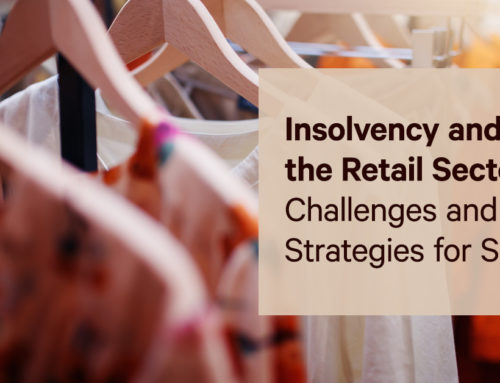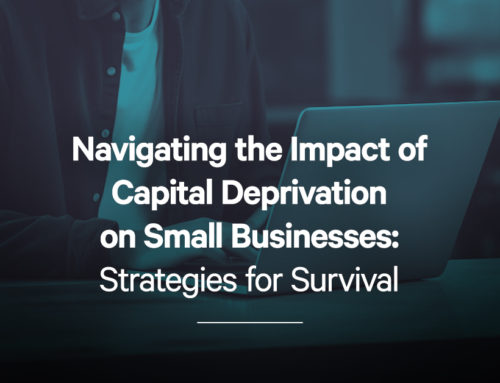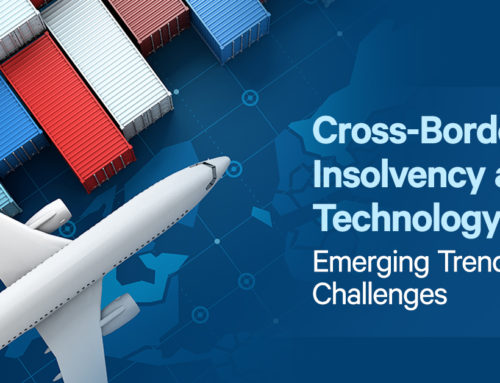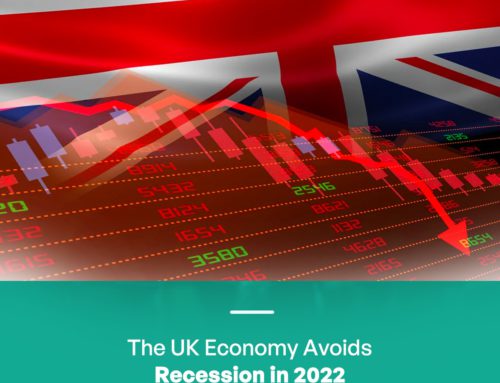Insolvency looms as a significant threat in the constantly changing terrain of business, capable of dismantling even the most robust organisations. Yet, amidst this uncertainty, early detection emerges as a powerful asset. As seasoned professionals in insolvency, we understand profoundly the critical role that timely identification plays in shielding businesses from financial ruin. Early detection acts as a crucial linchpin in the resilience of businesses, providing a vital window of opportunity to address underlying issues before they escalate into impossible challenges. By recognising warning signs early on, businesses can take proactive measures to level up their financial health, fortifying themselves against potential pitfalls.
Plus, the benefits of early detection extend beyond crisis management; they include the cultivation of a proactive organisational culture that values transparency, accountability, and forward-thinking strategies. Through this lens, early detection becomes not just a reactive tool but a proactive catalyst for sustainable growth and success. In this blog, we embark on a journey to unravel the importance of early detection in insolvency prevention and uncover the diverse strategies it involves.
Understanding Insolvency
Insolvency rarely strikes suddenly; instead, it brews beneath the surface, gradually manifesting through subtle indicators that demand attention. Recognising these warning signs is important. From dwindling cash reserves to mounting debts, these red flags often signify deeper underlying issues that require prompt action. Early detection equips businesses with the foresight to address these challenges proactively, mitigating the risk of insolvency before it escalates into a crisis. By addressing these early signals, businesses can avoid the dire consequences of insolvency, preserving their financial stability and paving the way for long-term success.
The Power of Timely Intervention
Early detection provides businesses with the power to implement proactive measures and fend off the looming threat of insolvency. By identifying warning signs early on, organisations gain the opportunity to implement corrective actions quickly. Restructuring debt, renegotiating contracts, or reassessing operational strategies are among the tools available for mitigating financial challenges. Through timely intervention, businesses not only enhance their chances of survival but also lay the groundwork for sustainable growth and resilience. Embracing these proactive measures fosters a culture of adaptability and innovation within the organisation, enabling it to deal with future uncertainties with confidence and agility. By addressing potential risks head-on, businesses position themselves to thrive.
Harnessing Financial Analysis for Insight
Comprehensive financial analysis serves as the bedrock of early detection. By thoroughly scrutinising financial statements, cash flow projections, and operational metrics, insolvency practitioners uncover patterns indicative of distress. What’s more, leveraging advanced analytics and forecasting techniques improves predictive capabilities, enabling practitioners to anticipate challenges and come up with preemptive solutions. This analytical skill not only highlights the present but also provides invaluable insight into future trends, enabling businesses to navigate uncertainties with confidence. By continuously monitoring key financial indicators and market trends, businesses can adapt their strategies proactively, staying ahead of potential risks and seizing emerging opportunities. This proactive approach not only safeguards against insolvency but also positions businesses for sustainable growth and success in the long term.
A Multifaceted Approach to Risk Management
Early detection goes beyond financial analysis, involving a holistic understanding of the broader business environment. Market dynamics, regulatory changes, and competitive pressures all contribute to insolvency risk. This means effective risk management demands a multidimensional approach that integrates financial understanding with industry insights and situational awareness. By embracing this multifaceted perspective, businesses can identify potential threats early on and develop proactive strategies to avoid them. Understanding the intricacies of the market and regulatory frameworks allows businesses to anticipate challenges and adapt their operations accordingly. Plus, staying ahead of competitive pressures enables organisations to position themselves strategically, mitigating risks and capitalising on emerging opportunities. This comprehensive approach to risk management not only safeguards against insolvency but also boosts resilience and agility in the face of evolving business dynamics.
Fostering Resilience and Sustainability
Embracing early detection in insolvency prevention fosters resilience and sustainability within organisations. By promoting a culture of transparency and accountability, businesses instil discipline, prompting proactive decision-making and careful risk management. As a result, businesses emerge stronger and more adaptable, prepared to weather storms and seize opportunities. This proactive approach not only safeguards against insolvency but also cultivates a foundation for long-term success. What’s more, by fostering a culture of continuous improvement and innovation, organisations can stay ahead of the curve, driving growth and maintaining their competitive edge in the marketplace. This commitment to excellence and adaptability positions businesses for sustained success, even during uncertain times.
Building Collaborative Relationships
Effective early detection requires collaboration and communication among stakeholders. Establishing open channels for dialogue promotes transparency between management, investors, creditors, and insolvency practitioners. Overcoming the stigma associated with financial distress encourages proactive engagement, facilitating timely interventions to reduce risks. By fostering collaborative relationships built on trust and transparency, businesses can leverage collective expertise to work through challenges and come out the other side stronger. What’s more, cultivating a culture of collaboration boosts innovation and resilience, as diverse perspectives contribute to robust decision-making and problem-solving. Through shared insights and mutual support, stakeholders can align their efforts towards common goals, driving the organisation towards sustainable growth and success.
Embracing Foresight for Sustainable Success
Early detection plays a pivotal role in insolvency prevention, offering businesses the opportunity to preempt financial distress and chart a course towards stability and growth. By embracing a proactive mindset and leveraging comprehensive analysis, businesses can manage the complexities of business with confidence and resilience. It’s important to harness the power of early detection to not only survive but thrive in an ever-changing world. This proactive approach not only safeguards against potential risks but also positions businesses to capitalise on emerging opportunities, driving innovation and growth long-term. With early detection as a foundation of their strategy, businesses can quickly adapt to market fluctuations, anticipate customer needs, and stay ahead of the competition, making sure they prosper and succeed in years to come.
Contact Us for Proactive Insolvency Prevention Strategies
For tailored solutions and proactive insolvency prevention strategies, reach out to us today. Call us on 0800 246 1845 or email us at mail@leading.uk.com. Let us partner with you in safeguarding your business against the risks of insolvency and making sure your future is prosperous.






